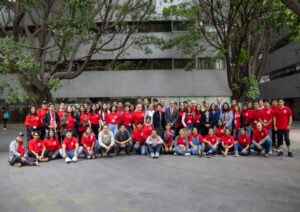The project aims to ecologically rescue La Piedad Lagoon and its channels to reduce economic and health impacts, conflicts over water, biodiversity, and ecosystem services loss, and to avoid reducing family and sports recreation spaces. This Lagoon is in Cuautitlán Izcalli, in the Metropolitan Area of Mexico City (ZMCM).
The project will allow the construction of a new model of urban-rural development based on sustainable water management that fosters green economic development based on the conservation of the Lagoon.
The project began in 2018 and, throughout these years, has built solid relationships with the diverse actors involved. In 2023, this intervention integrated the EPIC approach to generate the knowledge required to advance the project based on the results of the fieldwork conducted by teachers and students from Metropolitan Aunotomous University. These activities were conducted together with the ejidos of San José Huilango and San Francisco Tepojaco, community organizations, and the local government of Cuautitlan Izcalli. In addition to generating new knowledge, activities were conducted to train social actors on how to build and maintain wetlands.
The Teaching Learning Units (UEA) selected to integrate into the project La Piedad Lagoon include:
• The collection and analysis of water samples in the Lagoon, canals, and surrounding areas to identify the presence of biological and chemical contaminants. Students from the UEA Analytical Chemistry Laboratory will participate in this activity, whose teaching objectives are sampling and analyzing water quality.
• The students of Qualitative Data Collection Techniques conducted the preparation and collection of first-source information from the inhabitants around the Lagoon and the ejidatarios.
The objective of this course is to teach different methodologies for qualitative research. Based on these interviews, information related to health impacts due to the pollution of the Lagoon, the species present, and the economic and recreational activities carried out before the contamination of this water body were documented.
• Develop photographic and video inventories of the current contamination conditions in the Lagoon. Students from the audiovisual production and post-production course are participating in this activity. They will work on a short documentary that will serve as a diagnosis of the lagoon’s water problem.
